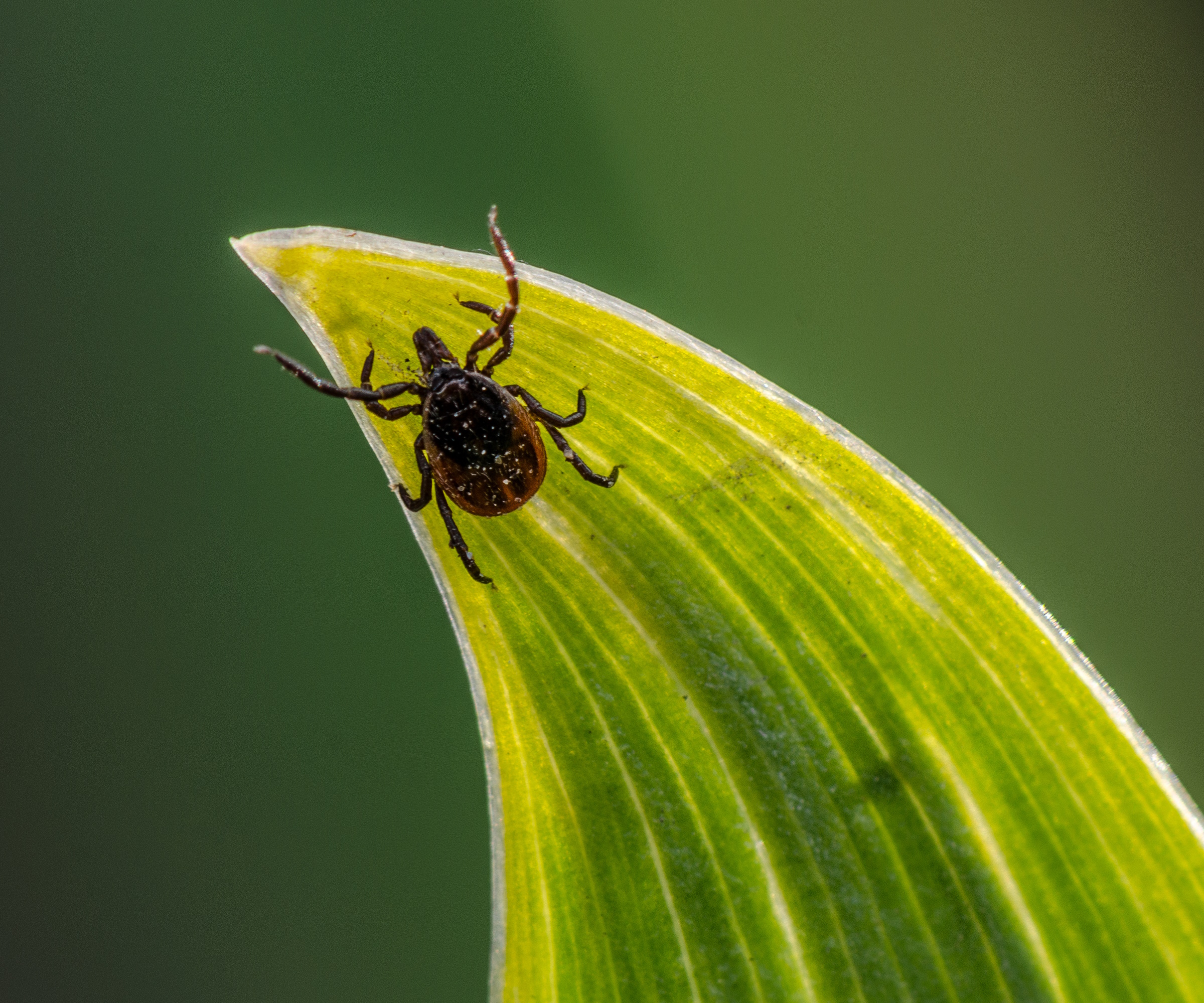
Arguably, one of the worst signs that summer has arrived is an influx of ticks.
Whether you have pets or are an avid hiker or gardener, these pesky pests can do a serious amount of damage with such a tiny bite, making prevention an absolute must to protect your health. But how do you do this without spraying chemicals?
We talked to pest control experts to learn more about the natural methods they use to repel ticks in your yard and uncovered the three best recipes to make DIY tick-repellent at home.
How to make DIY tick-repellent
The best way to avoid tick bites is, of course, to kill ticks in your yard, use tick-repellent plants to keep them at bay, and ensure that you cover up exposed skin when walking through long grasses or shrubbery. However, it certainly doesn't hurt to add an extra line of defence in the form of a DIY tick-repellent spray to really dissuade these little blood suckers from bothering you.

1. Mix up a garlic solution
They say garlic keeps vampires away, and while we cannot vouch for the efficacy of that, it certainly helps with other little blood suckers, such as ticks.
Garlic is one of the most common scents used in homemade bug sprays, and it is just as efficient for repelling ticks, explains Brett Bennett, director of operations, PURCOR Pest Solutions. Although perhaps this is unsurprising given it is also effective at keeping people away when you eat too much of it – its strong scent is certainly repellent.
‘I always recommend garlic oil as one of the best all-natural, DIY tick repellents. You can make garlic oil at home fairly easily just by simmering some cloves in olive oil, or you can buy some ready-made.
‘Ticks hate garlic, so applying garlic oil to your skin or clothes can be a great way to keep these pests off of you. It's also safe to use in your yard, or you can simply plant some garlic or other alliums around as a natural way to repel these guys.'
2. Use strongly scented florals
If you do not fancy making yourself smell like garlic bread, there are some other sweeter-smelling DIY tick-repellent options, such as using strongly scented florals like rose geranium and lavender, continues Allan Bossel, pest control expert and operations expert at BBE Bed Bug Exterminator. ‘These compounds make it difficult for a tick to sense its environment thus it is harder for it to locate and attach itself to the host,’ he explains.
‘The first step is determining if you will use a carrier oil or alcohol base. Witch hazel is a popular choice for an alcohol base because it evaporates quickly, leaving active ingredients on your skin.
‘Then, for every two tablespoons of your chosen base (carrier oil or witch hazel), add about 10 drops of your selected essential oil; these essential oils are strong so use them with caution,’ he warns.
‘Combine all the ingredients in a small dish and stir them together thoroughly. You want the essential oils to be mixed evenly throughout the mixture. Carefully pour your mixture into your spray bottle, which will enable you to apply it easily to your skin or clothing if you plan to head outside.
‘Before you start using this on many areas of your body, test it out on a small patch of skin first to ensure no adverse reactions happen from it. If all is well, apply the repellent generously to exposed skin and clothing, especially around ankles and lower legs where ticks are more likely to latch on.’
3. Eliminate ticks with eucalyptus oil
Another great nice-smelling natural pest control method is eucalyptus oil, adds Jeremy Yamaguchi, CEO of Lawn Love.
‘My preferred DIY tick repellent is diluted eucalyptus oil. Add about 20-25 drops of eucalyptus oil to eight tbsp of water in a spray bottle, then you can spray that all over your clothes, skin, and pets. Eucalyptus oil succeeds at both repelling ticks and killing them.
‘You just have to remember to dilute it; otherwise, it’s not safe to apply to you or your pets,’ he warns.
FAQs
How can I keep ticks out of my yard?
There are several ways you can try to prevent ticks in your yard, from using natural repellents such as plants that they hate and stopping animals from entering your yard with robust fencing. It is also helpful to avoid creating overgrown areas where they can hide, and encourage natural predators into your yard such as birds and hedgehogs to help keep their population under control.
What are ticks attracted to?
Ticks are naturally drawn to areas with cover to allow them to hide, such as long grasses and dense shrubs. They also love heat and are naturally drawn to carbon monoxide, which is why they are compelled to latch onto us and our pets as we pass by. Given that we cannot stop breathing or sweating, it puts emphasis on the importance of using repellents and covering our skin when in areas we suspect have ticks.
If you are ever bitten by a tick, it is important to seek professional medical attention, as they can help to remove the biter from your skin without leaving any bits behind that would later become infected. Avoid scratching or rubbing the area until treated, and keep the area clean to prevent further complications.







